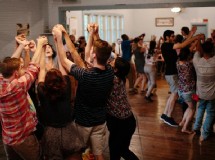On October 29, 2014, the Professional Skaters Association notified its ice skating coaches that the PSA Code of Ethics had been revised.
Statement From Jimmie Santee, Executive Director of the PSA:
The non-public investigation of our former code of ethics by the FTC was a major event which was initiated in June of 2013. The PSA retained expert legal representation, who determined the law in this area is unsettled. PSA’s cost of defending itself against the FTC’s allegations would likely exceed PSA’s financial resources, with no certainty of ultimate success.
In anticipation of an agreement, PSA has moved forward to allow solicitation or open recruitment of skaters. The PSA was able to negotiate "Safe Zones" in regards to rule #3 which provides skaters an opportunity to focus on the tasks at hand noted in the rule; simply while in a lesson, competitions, tests, and exhibitions. For all intent and purposes solicitation cannot happen during the events stipulated in rule #3.
PSA Code of the Ethics - Rule #3 (Revised October 29, 2014):
3. In order to protect the safety and development of students, no member shall engage in any in person solicitation of a student while the student is actively engaged in a lesson or while “performing”. “Performing” means skating or preparing to skate in an event at an arena in a test, competition, or exhibition, and includes meeting with coaches, locker room time, practice skating, and warmup skating.
History of the PSA's Code of Ethics:
In 1964, a code of ethics was approved and adopted by the Professional Skaters Association.
One of the most important guidelines in that former figure skating coaches' ethics code was that teaching a skater that was already working with another figure skating coach without permission was not acceptable and it was not acceptable to solicit directly or indirectly.
Former PSA Code of Ethics Rule #3:
"No member shall in any case solicit pupils of another member, directly or indirectly, or through third parties."
The above guideline was imprinted on every ice skating coach's mind and directed his or her actions in the skating world. If a parent of another skater solicited business for a coach, that coach had violated the PSA Code of Ethics. If a figure skating coach directly solicited another coach's student, he or she was in violation of PSA's code. Sometimes a grievance was filed which caused friction.
Figure skating parents and other skaters also felt that they could not be friendly with skaters that took lessons from certain coaches.
Prediction of How This Change Might Affect the Figure Skating World:
The former code of ethics guideline meant that if a parent of the skater of Coach A suggested to another parent that he or she should consider leaving Coach B for Coach A, that Coach A could have been in violation of the PSA Code of Ethics. Even though the coach didn't do the soliciting directly, a parent had solicited business for that coach. The amended Rule #3 now means that soliciting skating students from parents is no longer a violation of the PSA's code.
Advice: Figure Skating Coaches Are Professionals and Should Respect One Another:
All ice skating coaches should be aware that directly or indirectly soliciting business from another ice skating coach, skating rink, or figure skating club could cause all sorts of problems for coaches and skaters. Figure skating coaches are professionals and should continue to respect the businesses of others in the ice skating industry.
Questions Should Be Directed to Jimmie Santee, Executive Director, Professional Skaters Association:
Jimmie Santee
Executive Director
Professional Skaters Association
3006 Allegro Park SW
Rochester, MN 55902
- 507-281-5122
- JSantee@skatepsa.com
SHARE






































